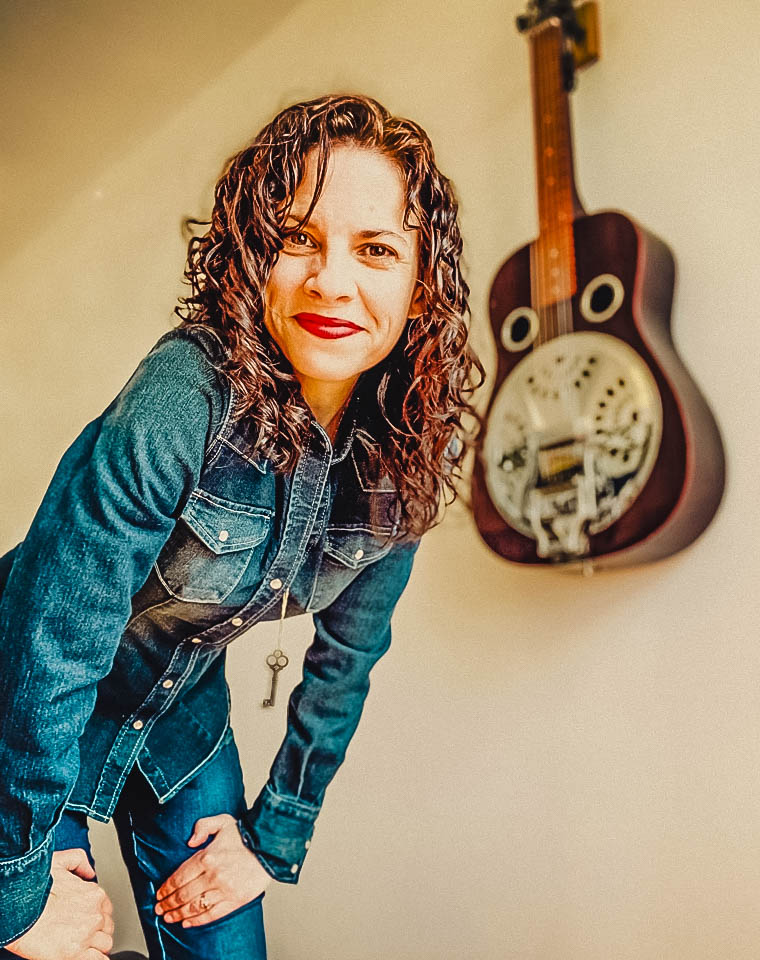Colorado Roots Music Camp
Camp II
August 10-16 2025
Arrival: 4:00pm Sunday
Departure: 9:00am Saturday
Colorado Roots Music Camp
Camp II
August 10-16, 2025
Arrival: 4:00–5:00pm Sunday
Departure: 9:00am Saturday
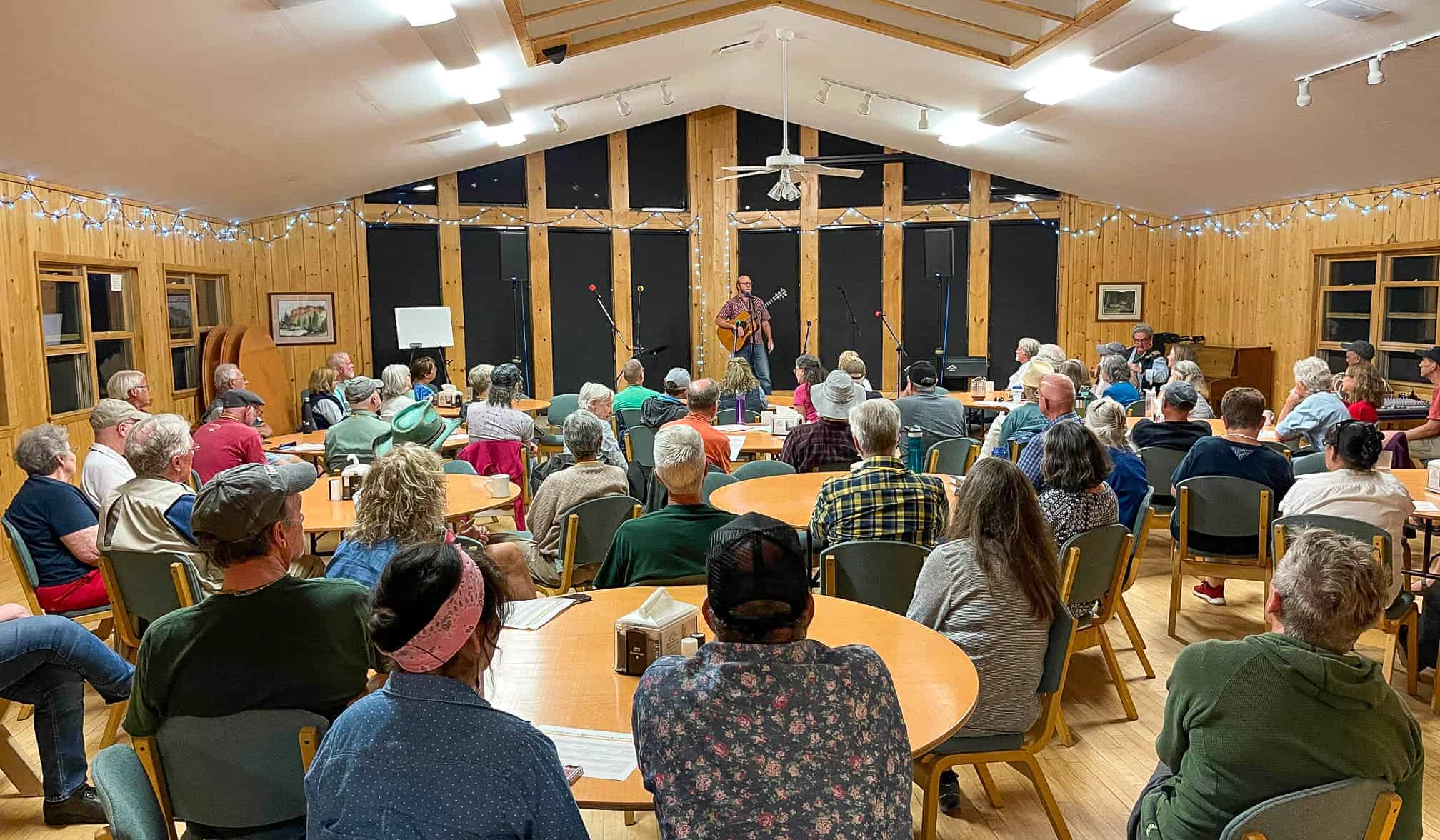
Activities
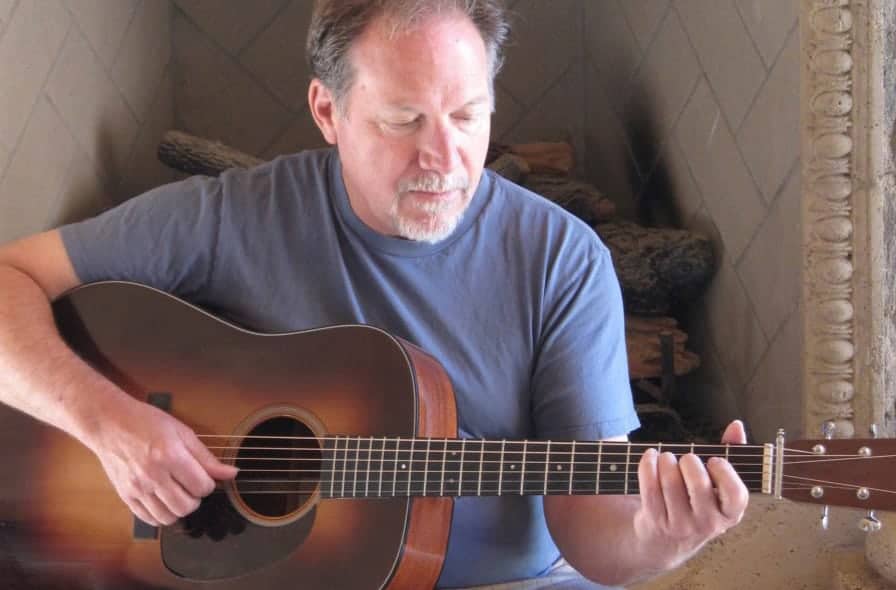
Daily Instrument Classes
taught by professionals
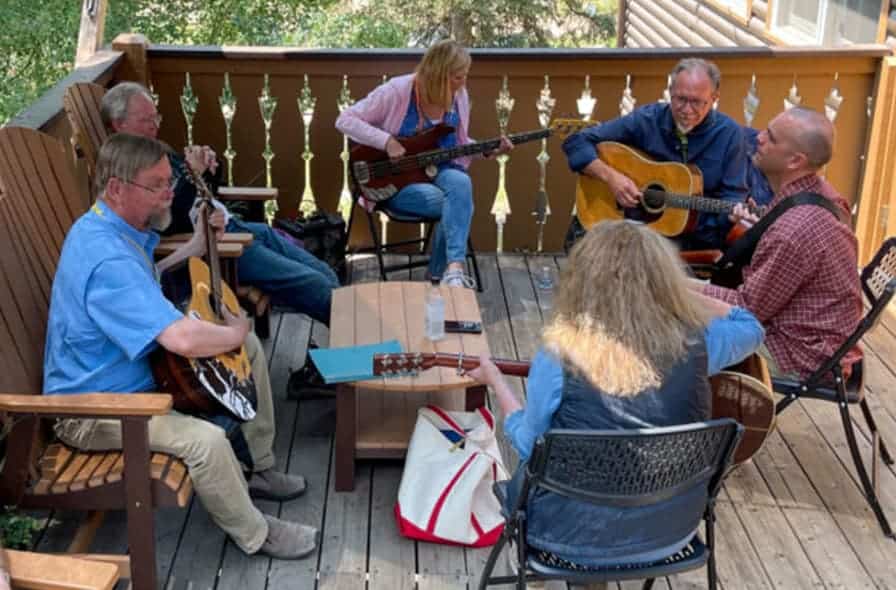
Daily Jams & Music Circles
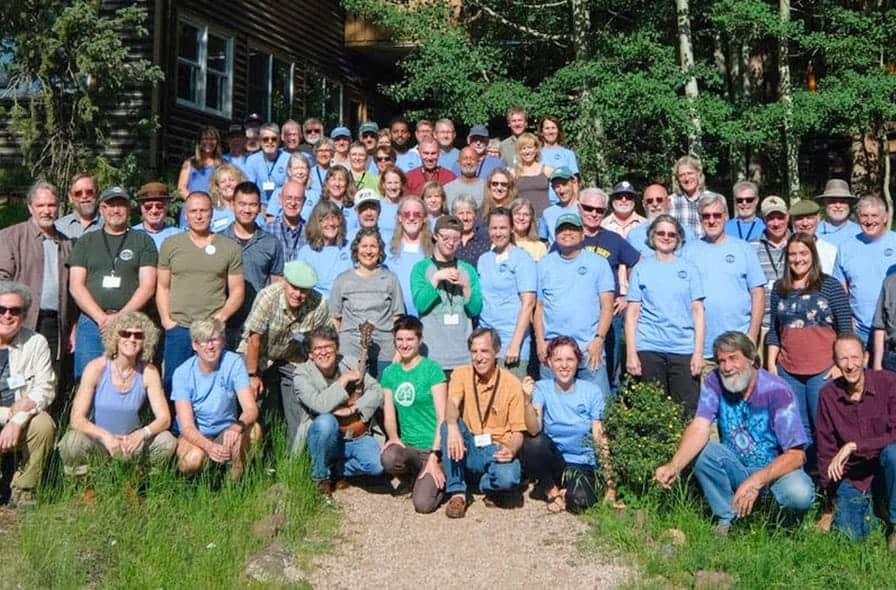
All Camp Harmonium
2024 Class Schedule (2025 Forthcoming)
Note: Students sign up for classes at registration upon arrival AND/OR after instructors offer their class promo Sunday after supper
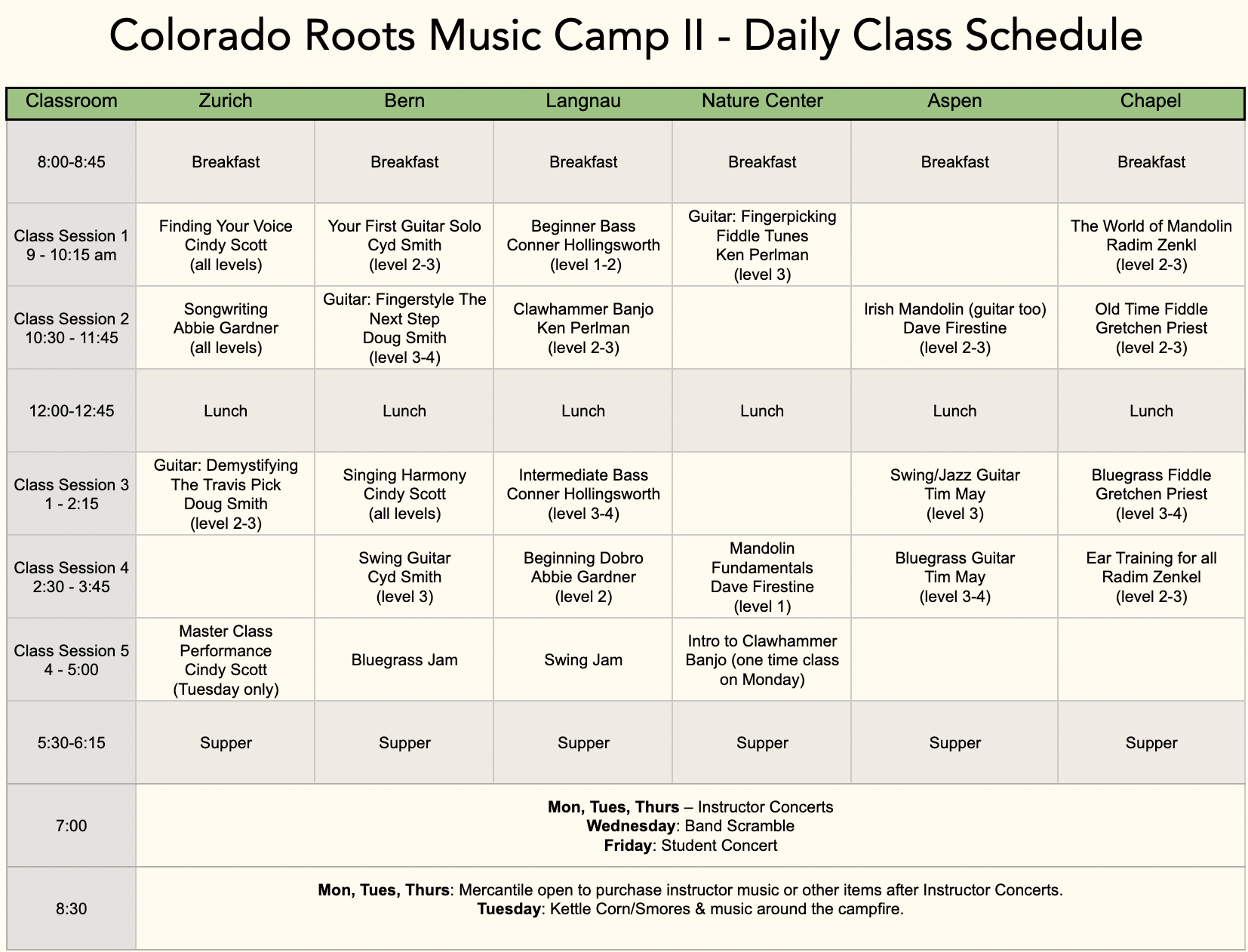
2025 Instructors & Class Offerings
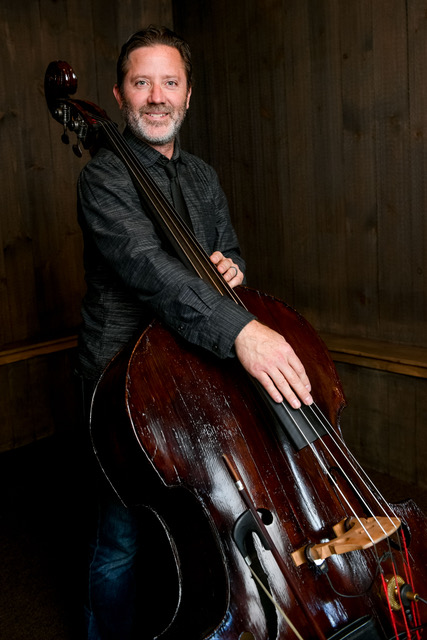
craig akin
Beginner Bass (Level 1-2)
Are you new to the upright bass or want to sharpen your skills? In this class I will show you where the notes are in the common keys and how to get a good sound. I will give you tips for jamming and discuss the roll of the bass player in a group. You’ll learn basic hand technique and posture, and develop good habits to take with you.
“But will we be playing in class?” YES, absolutely. We will play along to recordings of easy popular songs often called in jam sessions.
By the end of the week you will have a basic understanding of the instrument and have the skills to jam along with friends.
Intermediate Bass (Level 3-4)
Do you already have experience with the bass and want to dive deeper?
Here we will get into different styles of bass playing including swing, blues, country, waltz, bluegrass, and Latin. I will show you how to get a good sound out of the bass and with good intonation. We will discuss hand technique, the concept of rhythm and playing with a metronome, plus basic theory and how it helps in a jam session. Speaking of jamming, I will show you basic tools for soloing so you’re ready next time they say “bass, go for it!”.
We will play along with recordings of the different styles mentioned above.
By the end of the week you will have better intonation, technique awareness, and knowledge of different styles, soloing basics, and hopefully some good calluses!
Dave Firestine
Mandolin FUNdamentals (Level 1)
This course is designed for the beginning mandolin player. No experience required. However, if you are a more advance player and want to review some fundamental techniques, this is the perfect opportunity. We will begin with stretching, breathing, relaxing, and remembering to have fun! I will check your mandos for correct setup, strap setup, holding the mando and the pick. We will spend time playing with the proper pick direction, giving you the secrets to playing smoothly and at speed. We will learn some easy tunes, practicing the techniques described above. Join us for some fun, no shoes required.
Irish Mandolin – guitar too (Level 2-3)
When I first heard live Irish music, I was struck by the variety and intensity of emotion in this music. It has been part of my musical exploration since this first experience. My love of Irish music continues, and I would like to share it with you. In this class we will delve into the world of playing Irish music on the mandolin (and guitar). We will have a strong focus on right hand techniques to enhance the rhythmic drive of jigs, reels, and harnpipes. We will discuss traditional Irish improvisation and ornamentation. Backup techniques will be taught, and well as Irish session etiquette.
Abbie Gardner
SONGWRITING (All Levels)
In this class we’ll use a slew of fun writing games and exercises to get started. We’ll use a playful approach and practice turning memories into songs. Whether you’re a seasoned writer looking for fresh inspiration or totally new to writing songs and not sure how to start, this class will get you writing!
BEGINNING DOBRO (Level 2)
Love the sound of the lap-style slide guitar but not sure where to start? This class will get you set up and playing by the end of the week! We’ll find our way around melodies and chords using the classic Dobro open G-tuning. If you have a square neck resonator guitar, bring it! If you don’t, you’ll need to bring a regular guitar to temporarily “convert” to lap style playing. You’ll probably want to leave it set up this way all week, so bring an extra guitar for other classes & jams. **Equipment required is a “Nut raiser” and a solid metal slide bar. We’ll have a limited number of slides and nut raisers to borrow and/or purchase, but it’s even better if you can get them ahead of time! Links & options below. (level 2)
BAR (good for anyone with arthritis): https://amzn.to/3TpoXqO
BAR: (basic, good company) https://amzn.to/3Td2LjO
BAR: (less expensive option) https://amzn.to/41dVFxi
NUT RAISER: https://amzn.to/3NkBlVp
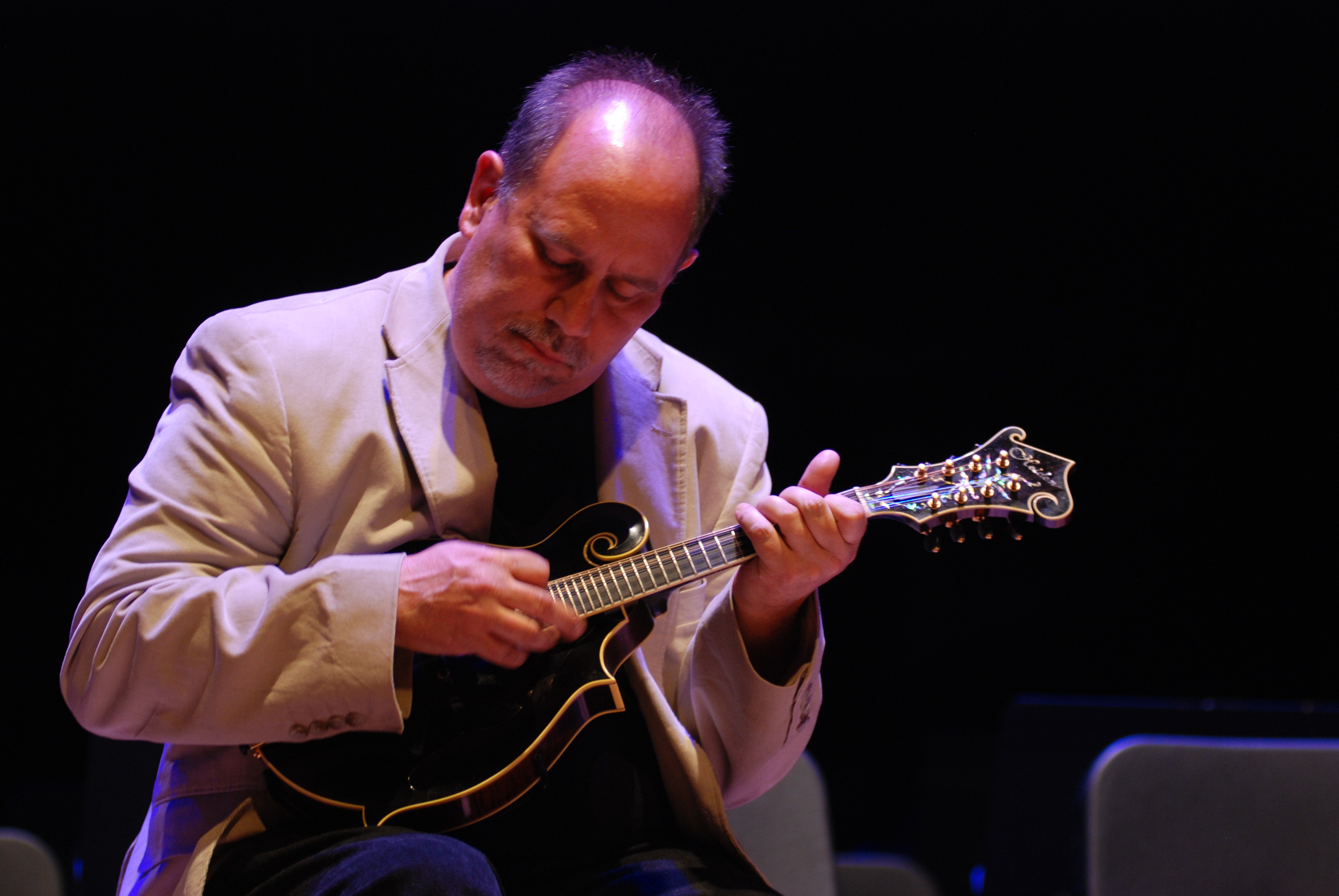
emory lester
Mandolin ‘Journeys’ (Level 2-3)
This intermediate mandolin level class will focus to help you improve on many areas of your playing, and will help with understanding goals and improving your experience in practicing, and playing with others at moderate tempos. The class will work with popular tunes and known examples, and will focus on subjects such as becoming comfortable with chords and rhythms, optimized technique to build for success, managing ‘tension’ and ‘energy’ in yourself and in your playing, the ability to find melodies by ear, as well as the study of playing with others in a jam or small group setting, and will set a roadmap for future improvement, learning and enjoyment. Handouts will be provided and recording for personal use is welcome.
Mandolin ‘Horizons’ (Level 3-4)
This advanced mandolin level class will touch on ‘expanding’ upon all you have learned, and focus on all areas of the mandolin as it relates to playing different styles of music. We’ll explore several styles of music, and the mandolin’s role in each. Subjects will include the study of ‘time’ and how to control and use it effectively, the study of song and melody ‘presentation’, advanced techniques and practice regimens, the study of ‘improvising’ and ‘creativity’, the art of ‘listening’ and ‘reacting’ in any situation or setting, and setting a roadmap for future improvement, learning and enjoyment. We’ll explore several styles of music, and the mandolin’s role in each. Handouts will be provided and recording for personal use is welcome. Did I mention we will learn about playing ‘fast’ and ‘faster’?
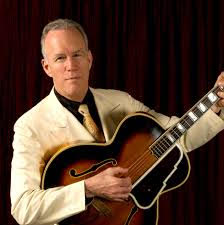
Tony Marcus
Western Swing Band Lab (Level All)
Forget the boots and hat, just bring your instrument (almost any instrument), a healthy appetite for swinging riffs, and lots of fun. Western swing combines the jazzy soloing of hot big band music with less complex chord progressions. We’ll concentrate on a song or two, working out harmony parts and other arranging ideas that make a band sound like a band.
Intro To Swing Rhythm Guitar (Level 2-3)
We’ll learn a few new moveable chord shapes that give swing music its distinctive flavor. You can get by with only three or four new shapes, and none of them are as hard as barre chords. They will open up the possibility of playing jazz, western swing, and pretty much any popular pre-rock American music. The songs we will play will likely be familiar, and definitely fun!
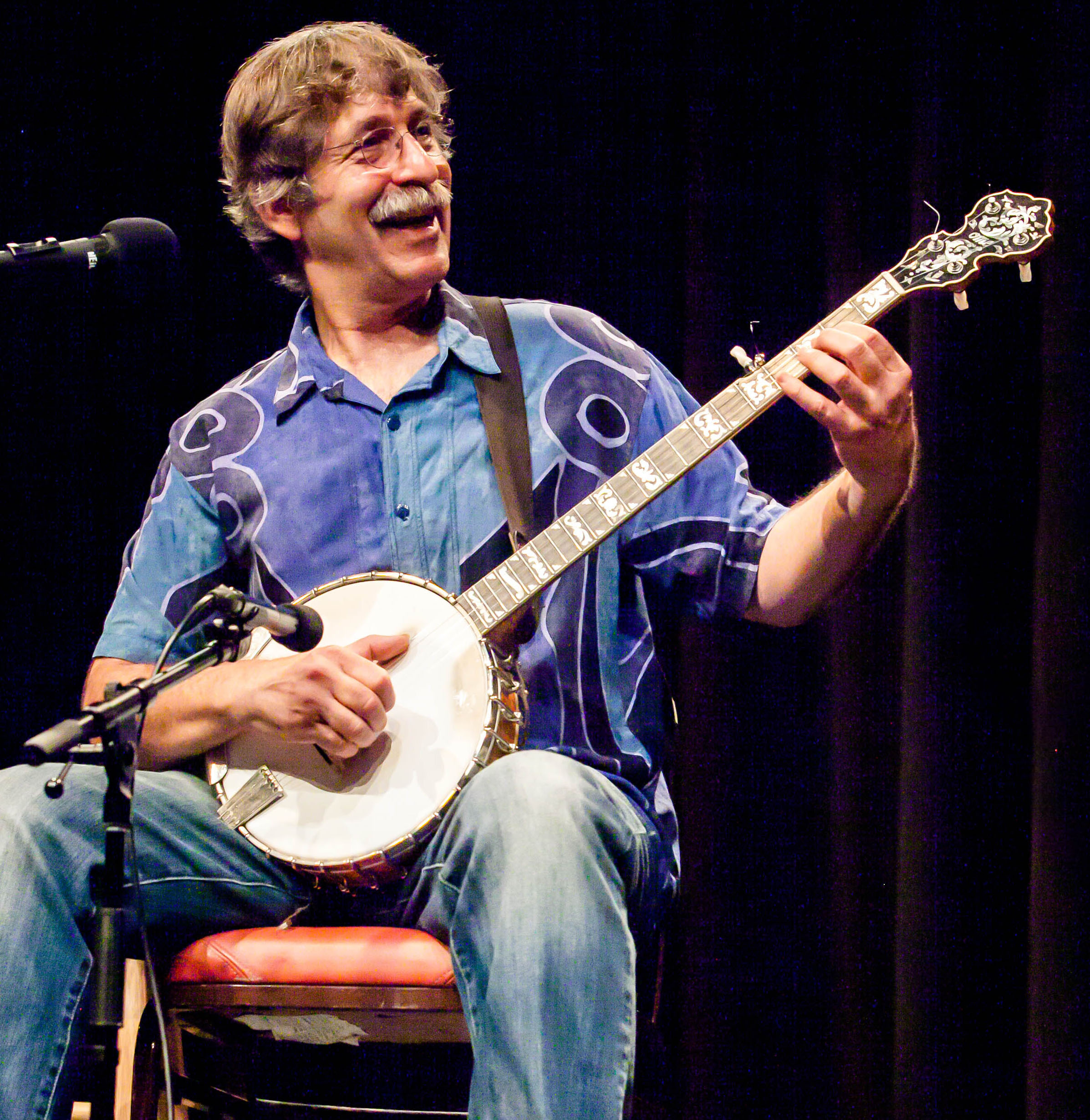
Ken Perlman
Clawhammer Banjo Step 1 (Level 1-2)
Improve your clawhammer technique and learn some great banjo tunes. We’ll make sure your basic stroke is on track, integrate fretting-hand techniques as hammer-ons, pull-offs, & slides, learn how to play in a few different banjo tunings, and discuss strategies for getting around the neck. If the class moves along quickly enough, we’ll also explore drop-thumbing & double-thumbing (using the thumb on both long strings and drone string). At each session, you’ll learn old-time fiddle tunes & song melodies that illustrate the skills just taught. Instruction will be via demonstration, ear, and tablature.
Clawhammer Banjo Step 2 (Level 3-4)
Learn and perfect the skills you’ll need to further explore both “traditional” & melodic clawhammer. We’ll start with a thorough exploration of drop-thumbing & double-thumbing; develop the ability to drop your thumb to any string at any time, use your picking finger and thumb to play any combination of strings in any order, and to use double-thumbing both for rhythmic accents and for creating runs of melody notes. We’ll also explore fretting-hand fingering strategies and ergonomics, hammer-ons and pull-offs involving all fretted notes, “alternate-string” pull-offs (where you pluck one string and then pull-off another string), and basic strategies for achieving syncopated rhythms. At each session, you’ll learn old-time fiddle tunes & song melodies that illustrate the skills just taught. Instruction will be via demonstration, ear, and tablature.
Note: Students with at least some clawhammer experience are encouraged to take both classes.
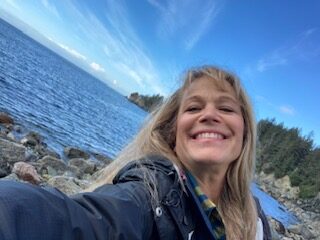
Gretchen Priest
Old-Time Fiddle Class (Level 1-2)
Old-Time tunes need bowings that make the melody pop and a dancing rhythm. Learn how to free up the bow hand & arm by breathing and relaxing the body. Focus on the “big beats” and the little ones find their way. We will work on left hand frame to get on top of the “Key notes” for double stops and drones and get the bow driving. We will look at tunes in major keys, modal
minor keys, square and crooked tunes. Learn by ear and there will be handouts.
Bluegrass Fiddle Class (Level 3-4)
We will look at some popular Bluegrass instrumental tunes and work on driving bluegrass speed bowing techniques and back up chops with left hand chords. Learn about what the fiddle needs to do in a vocal tune (kick oT , fills, how to hear the melody of the song and find a fiddle solo). How you might need to switch keys for a singer and adjust a song you know. Although it is not
a vocal class; we will sing, whistle or grunt what we are learning by ear and there will be handouts.
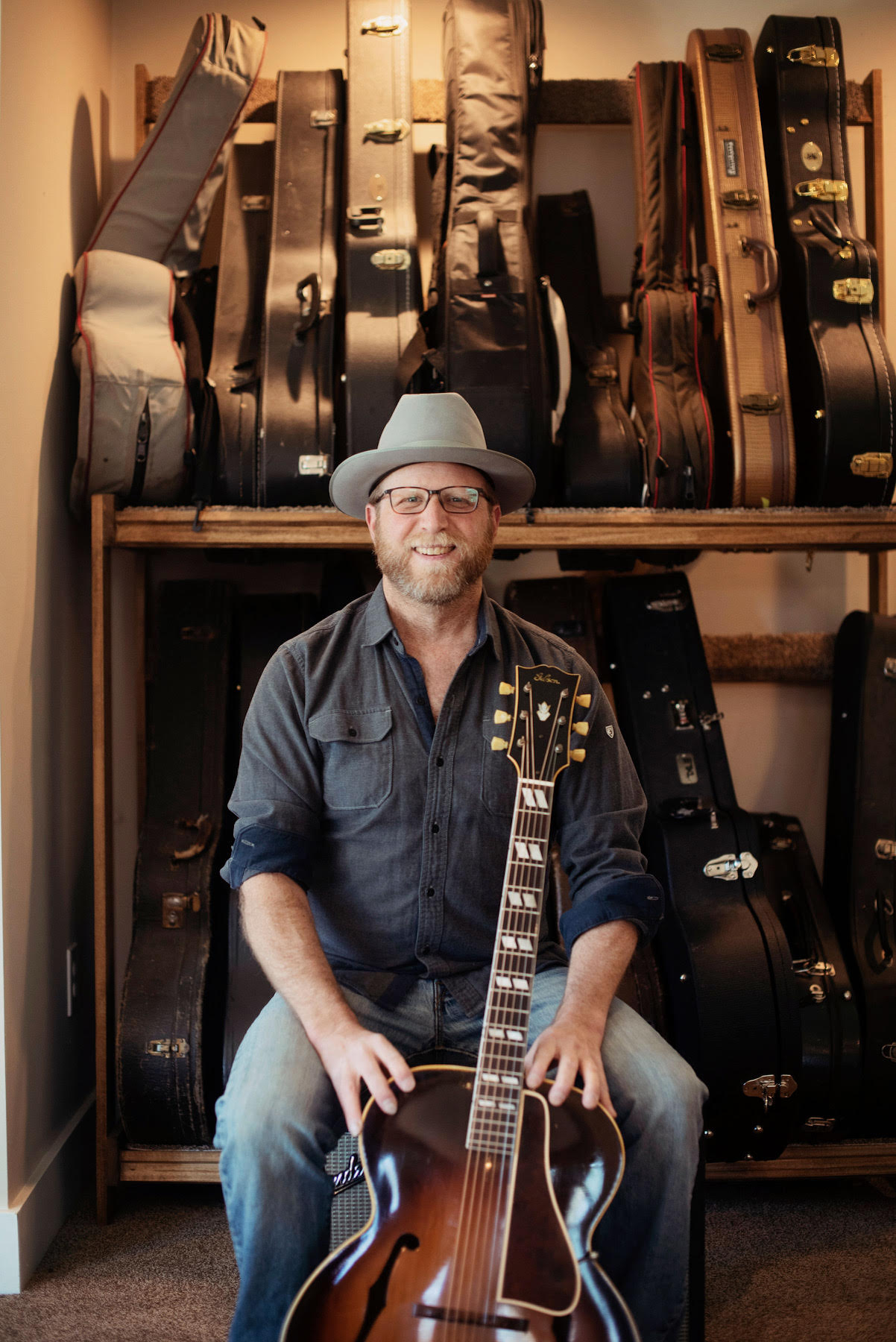
Greg Schochet
Country Blues Fingerpicking 101 – (Level 2-3)
All thumbs is OK in this class! They’ll be thumping with some down home acoustic blues from the likes of Mississippi John Hurt, Etta Baker and Doc Watson. We’ll methodically build right hand technique as we look at simple tunes in a handful of keys.
Bluegrass Guitar Boot Camp (Level 3-4)
This class is all about getting the reps in! We’ll look at the essential elements of good bluegrass guitar playing, make sure everything is in order, and drill the good habits in. We’ll give ‘em 10 on solid rhythm, smooth picking, good tone and making smart choices at the jam.
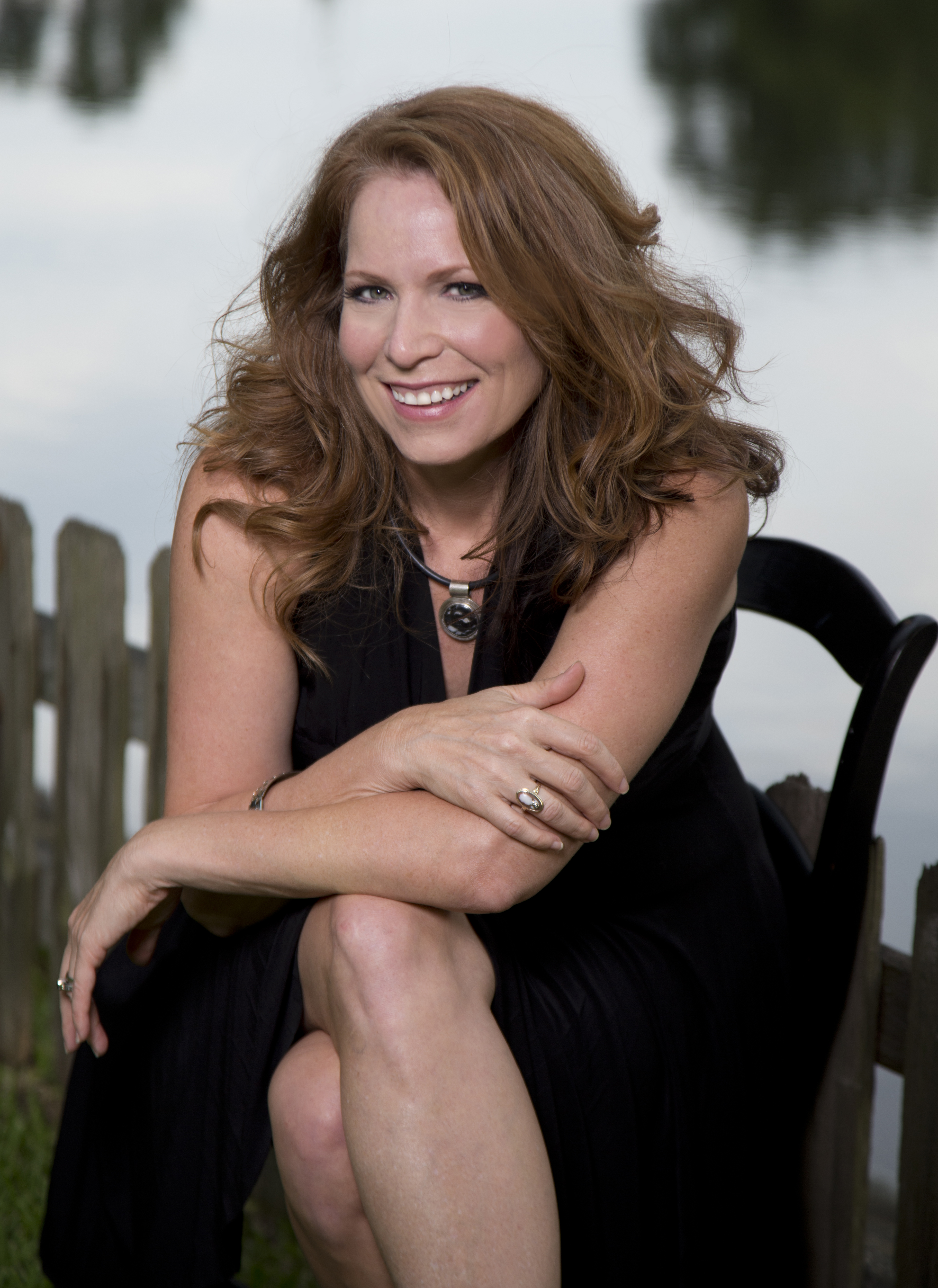
Cindy Scott
Finding Your Voice (Level All)
Using some basic games designed to help develop your ear, we will explore the wonderful world of Harmony! You will learn how to find harmony parts on your own. We will sing in two parts, three parts, maybe even four parts! We’ll all work together in class to compose parts so that we can show off what we learned at the student concert on Friday! No class limit.
Ear Training for Singing (Level All)
Using some basic games designed to help develop your ear, we will explore the wonderful world of Harmony! You will learn how to find harmony parts on your own. We will sing in two parts, three parts, maybe even four parts! We’ll all work together in class to compose parts so that we can show off what we learned at the student concert on Friday! No class limit.
One time Master Class: Mining for Magic Master Class (Level All)
“Great artists are people who find a way to be themselves in their art. Any sort of pretension induces mediocrity in art and life alike.” —Dame Margot Fonteyn, prima ballerina
In this two-hour class I’ll guide you towards crafting a deeper connection with yourself and your audience while performing. You may self-accompany or have someone play for you. All are welcome to attend (Limit 6 performers plus 2 alternates).
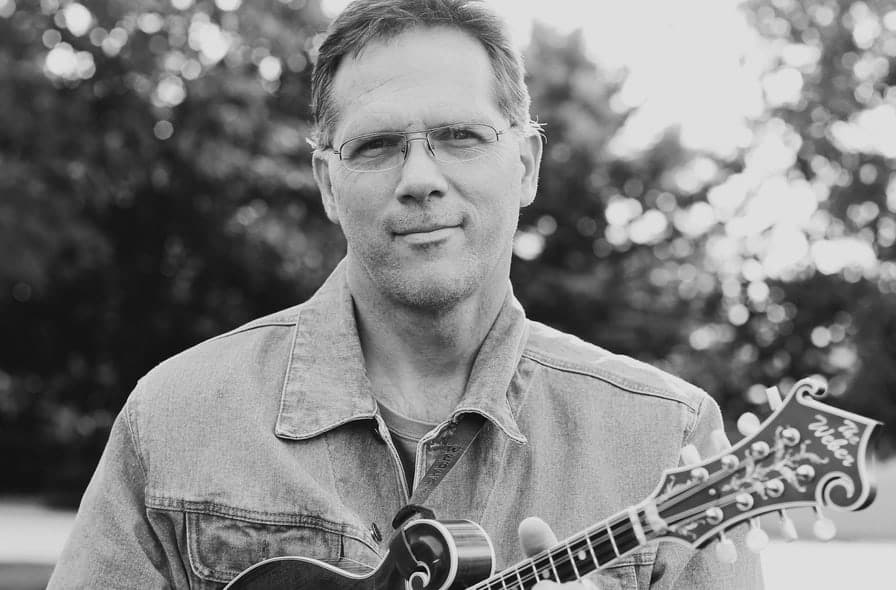
Jam Classes & Informal
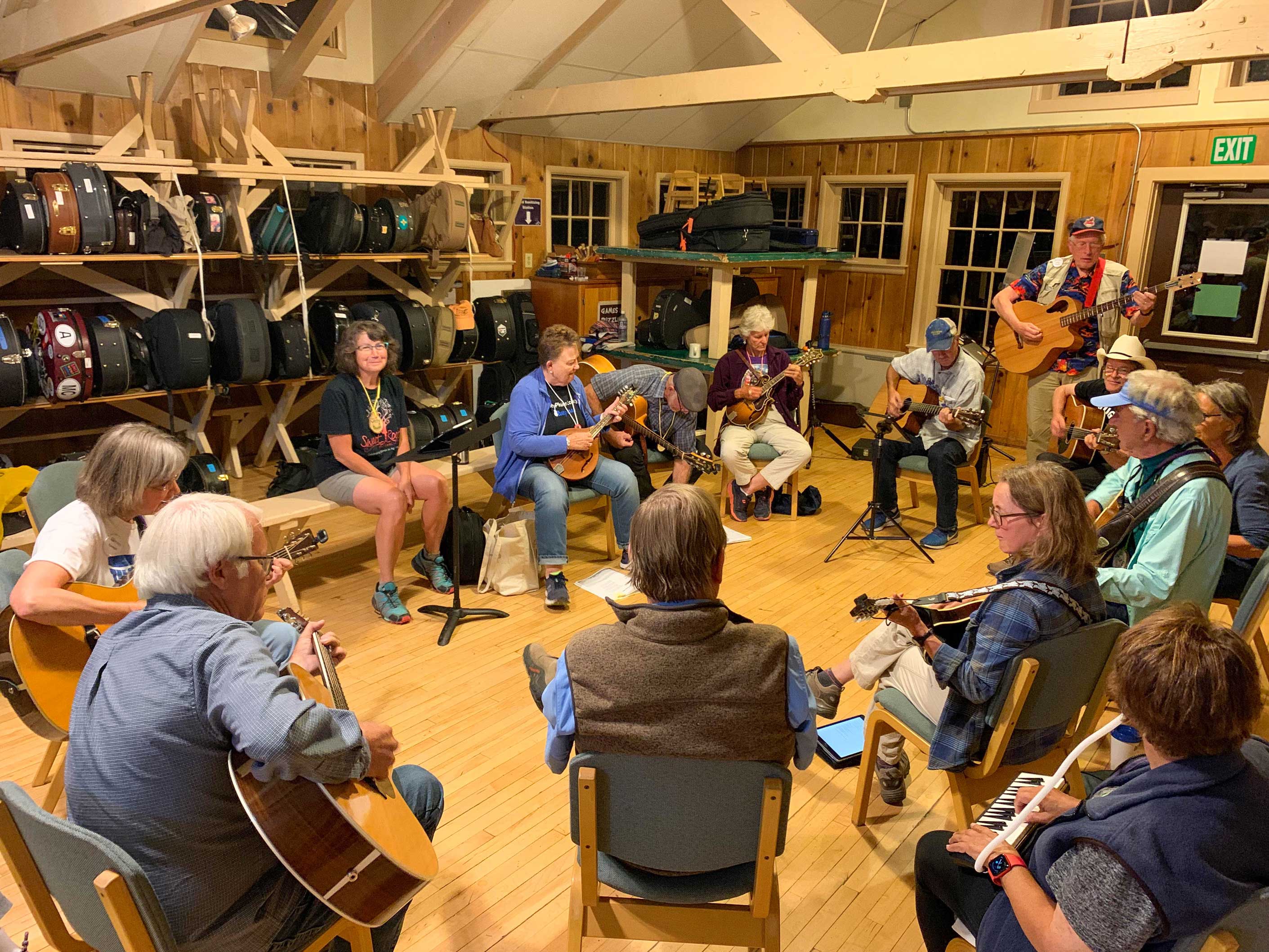
There will be jam classes and a lot of spontaneous jamming during the camp, so join in as they are big fun. If you’re a newbie and experiencing the (unfounded) “Jam Fear” that everyone does, don’t be intimidated. Everyone experiences Jam Fear when they start, if they have any sense. At first it may be a little scary, but it’ll soon turn into a lot of fun. Some reasons you might hesitate:
- “They’re going to hear me mess up.” No, they’re all busy trying to do their own thing. Very rarely in the average jam does anyone even hear the stuff you’re doing, since they’re worried about their own.
- “I’ll make mistakes.” Yes, you will, as everyone does, and if you’re not beating the daylights out of your instrument, you’re the only one who will hear them.
- “I’ll be put on the spot.” No, in a jam, you can always choose to hang back. If anyone calls on you to take a solo, a shake of your head is a perfectly legitimate response.
- “I can’t keep up.” Maybe so, maybe not. If you can’t, you can still play the chords or notes that sound OK to you as the music passes by.
The fact is that just like that cold water, it’s sometimes a bit scary to jump in the first time, but once you’re used to it, you’re telling everyone that they should jump in; what a bunch of weenies! Please, give the jams a try which may include: Swing Jams, Slow Jams, Bluegrass Jams, Acapella Jams, Honkey Tonk Jams or Old Time Jams.
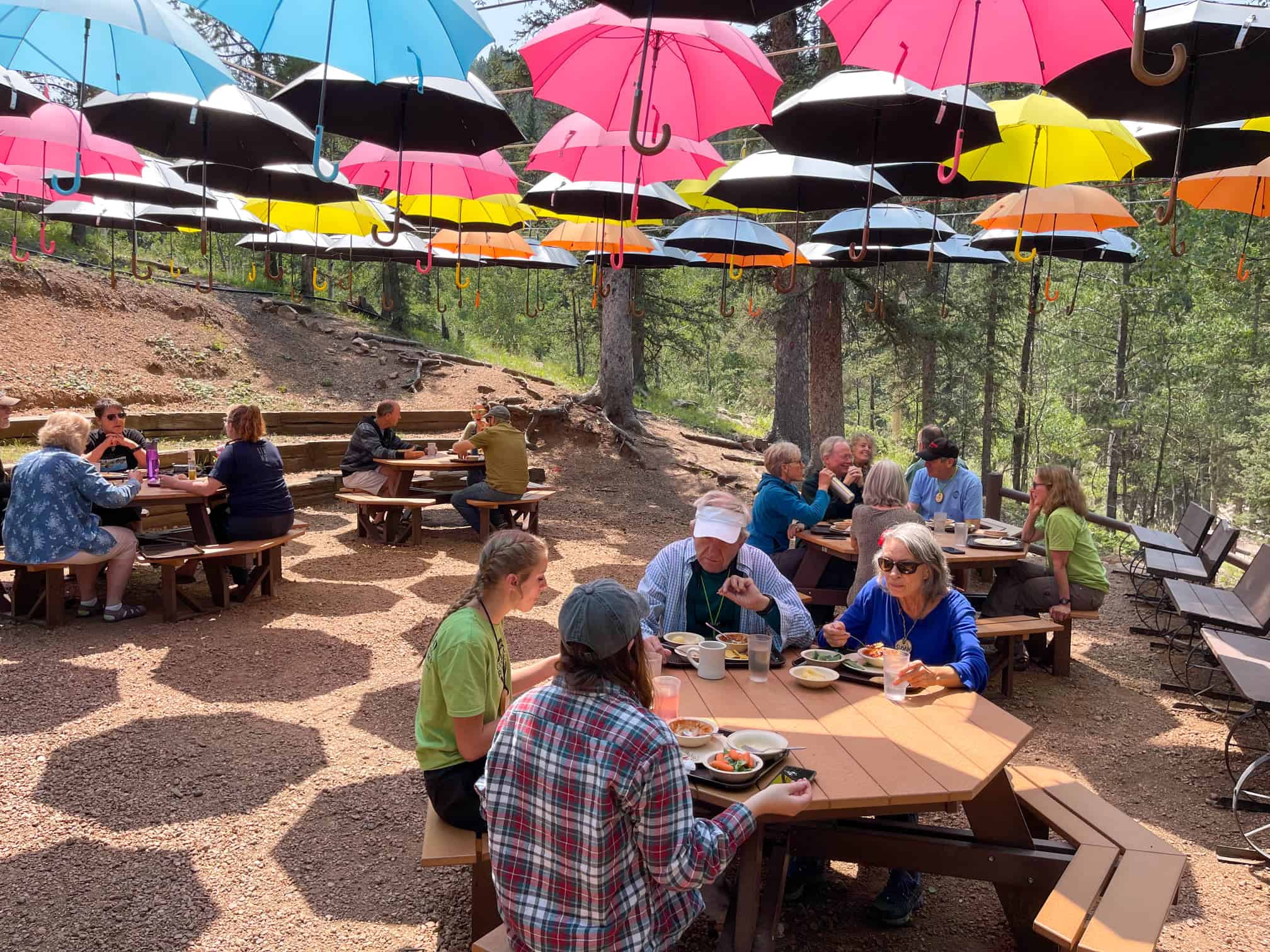
Registration Fees
Online registration opens one year prior to the retreat.
Online registration opens one year prior to the retreat.
Camp Staff
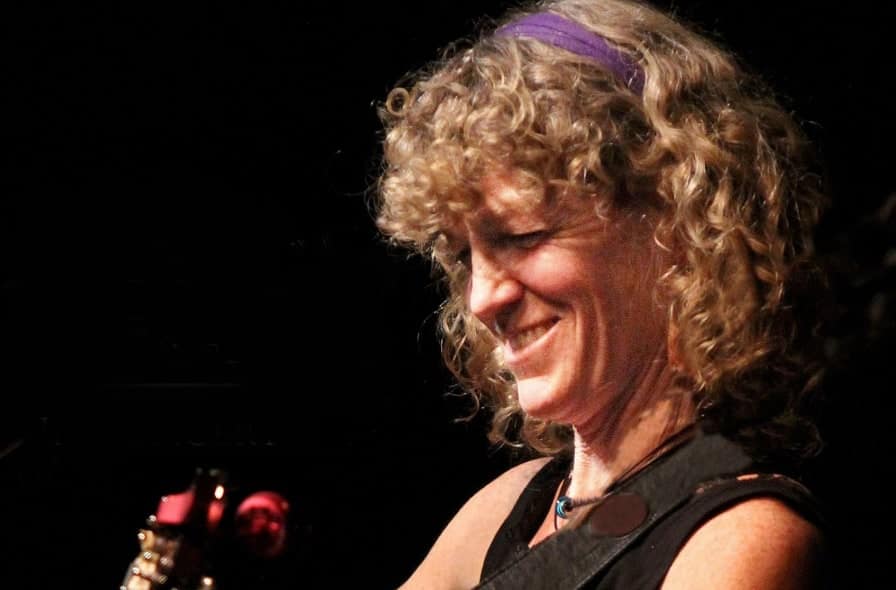
Cosy Sheridan, Co-Director
Cosy Sheridan has been called “one of the era’s finest and most thoughtful singer-songwriters.” She first caught the attention of national folk audiences in 1992 when she won both the Kerrville Folk Festival’s NewFolk Award and The Telluride Bluegrass Festival Troubadour Contest, then released her critically-acclaimed debut CD Quietly Led on Waterbug Records. She has released nine CDs, her music is featured in the Robert Fulghum multi-media novel The Third Wish and she tours consistently throughout the US. Her concerts are wide-ranging explorations of modern mythology (meet Hades the Biker), love songs for adults, contemporary philosophy for the thoughtfully-minded and her signature parody on aging and women. Throughout this journey, her lyrical dexterity is backed by her distinctive, percussive bluesy-gospel guitar style. A guitar student of instrumental luminaries such as Guy Van Duser and Eric Schoenberg and a voice student at The Berklee School of Music, she brings a depth of experience to her craft. For the past 18 years, she has taught classes in songwriting, performance and guitar at workshops and adult music camps across the country including The Puget Sound Guitar Workshop and The Swannanoa Gathering. In 2008 she co-founded The Moab Folk Camp.

Dave Firestine, Co-Director
Dave pulls out the “take no prisoners” style of playing at every dance – bringing the tunes to their full potential and beyond. He is a tune-meister and music jams are super fun when he is in the driver’s seat.
Originally a drummer, his strong sense of rhythm and syncopation is the foundation of his playing and tune writing, and truthfully he is never happier than when he gets to pull out the laptop drum kit to back swing and honky tonk tunes. Don’t worry, he can access his sensitive side when playing waltzes and beautiful melodies.
Dave is a music vagrant retiree now, but before that, he was Senior Gyzmologist building lightning detection systems. He is currently playing with the dance bands STEAM! (www.dancetosteam.com) and The Privy Tippers.
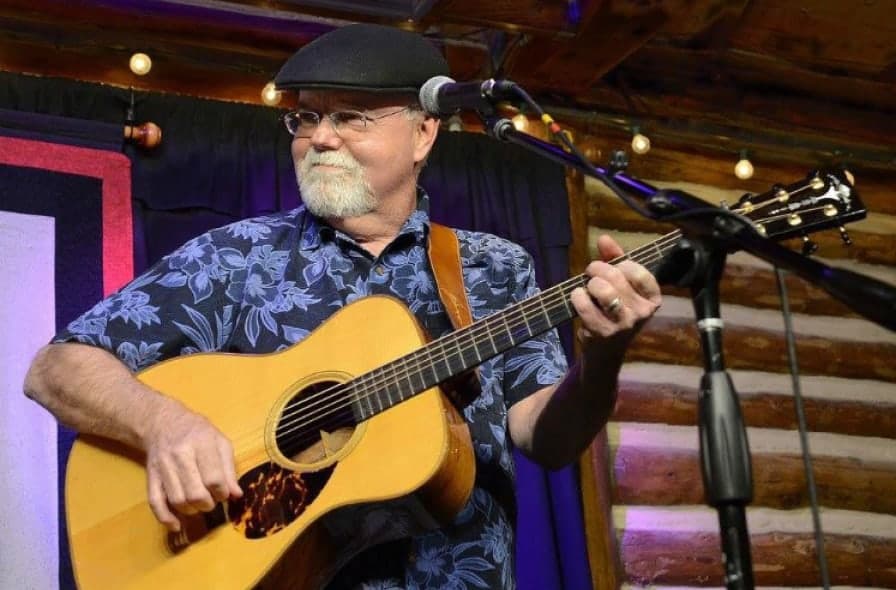
Charlie Hall, Founder
After earning a bachelor’s degree in Music Education with emphasis in French horn, Charlie Hall started out as a member of the 6th US Army Band in San Francisco. When real life reared its ugly head, he found he needed a day job, which he found in computers from 1983 to 2003. From 2003 to his retirement in 2017, he was a full-time guitar, mandolin and bass teacher. He’s taught high school band as well as classes in beginning guitar, fingerpicking, bluegrass guitar, music theory and jamming. Charlie was a founder and driving force of the Black Rose Acoustic Society in Colorado Springs, a favorite destination for roots musicians and roots music fans. He performed for ten years with the popular folk/bluegrass band Black Rose, was a finalist in the 2000 National Fingerpicking Championship and was nominated Bluegrass Guitarist of the Year in 1996 by the Colorado Bluegrass Music Society. With his wife Marianne Danehy, Charlie was creator & co-director of the Colorado Roots Music Camp from 2006-2017. He and Marianne are thrilled to hand off management of the Roots Camp to the folks at the Rocky Mountain Mennonite Camp as well as Cosy Sheridan and Raul Reynoso.
December 11, 2018, we said goodby to Charlie who passed away after a valiant battle with brain cancer. He leaves behind a large legacy of music and education and those who knew him are better for it. May we all carry on his legacy of life, love and life-long music!
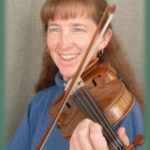
Marianne Danehy, Founder
Marianne Danehy discovered “her people” around 2002; that is, those who played roots music. From 2005 to 2014, she taught violin and fiddling in Colorado Springs, and is a registered instructor with the Suzuki Association of the Americas. Undaunted by two degrees and a former life in Mechanical Engineering and Mathematics, she’s the mother of two nearly-grown kids, William and Anna. Marianne is an excellent teacher and an expert at getting folks started both on violin and fiddle styles. From 2006-2017, along with her husband Charlie Hall, she was co-director of the Colorado Roots Music Camp.
Alumni Staff
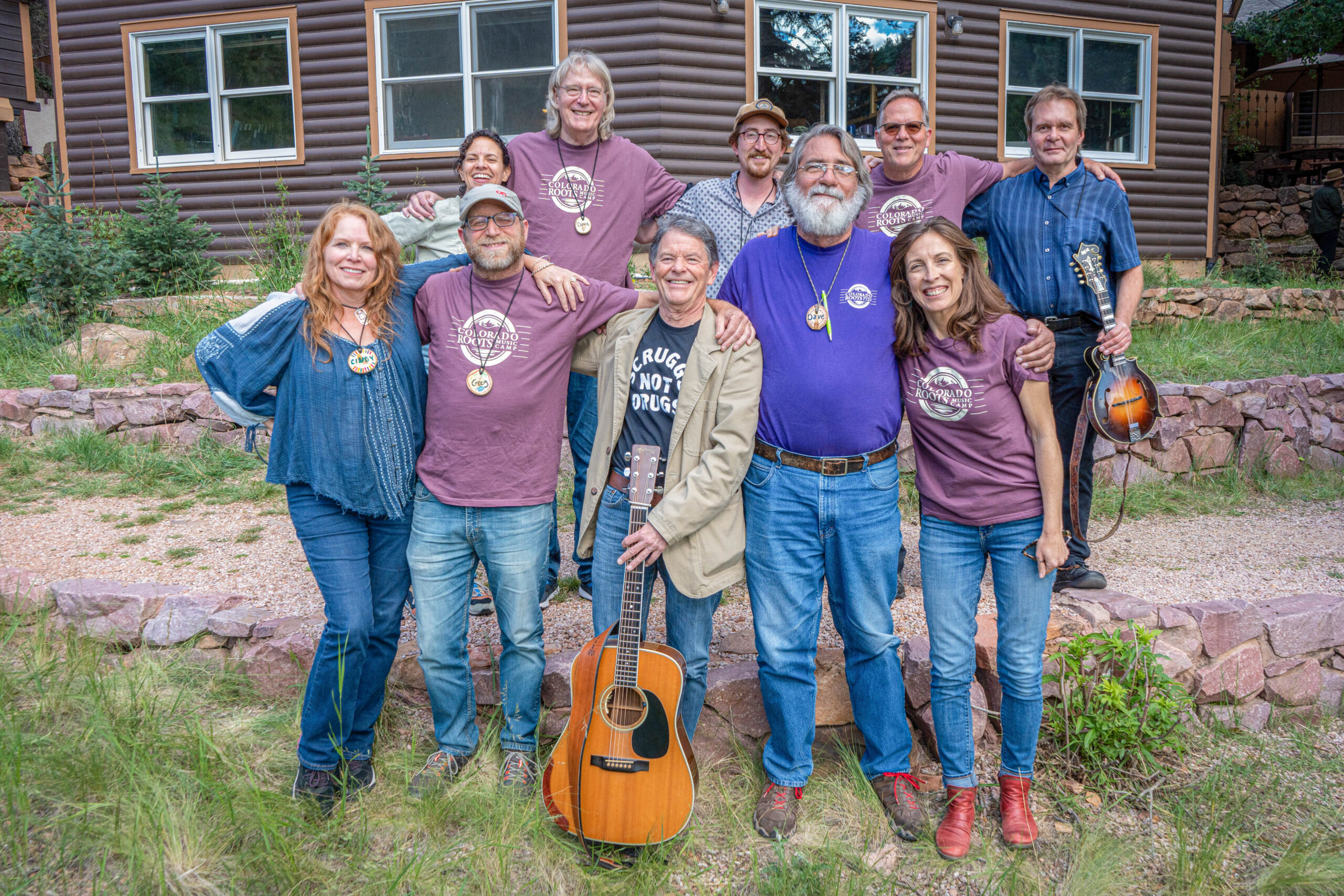
Colorado Roots Music Camp has enjoyed wonderful and talented instructors over the years since its beginnings in 2006. Our thanks to them for thier part of the rich legacy and music community created each week.
Frequently Asked Questions
Where can I learn more about my stay at RMMC (i.e. accommodations, altitude, creation care).
Please visit the “Reservation Guide” page of the Rocky Mountain website for “YOUR STAY WITH US”, “MOUNTAIN LIVING” & “CREATION CARE” information.
What foodservice is offered? Can you accommodate dietary restrictions?
Camp is pleased to offer a great selection of food choices (View Food Service) which include a main dish option, vegetarian option, salad (lunch & supper), and dessert (lunch & supper). Cold beverages (water, orange, apple, grape, crabapple) and hot beverages (coffee, tea, hot chocolate) are also provided.
As much as possible, the camp will accommodate dietary restrictions. An option will be given to list all of your dietary restrictions during registration. We cannot accommodate dietary preferences.
RMMC is not a peanut/nut free location since we serve a variety of campers and guest groups utilizing their own kitchen facilities.
If flying in from Denver (DIA) or Colorado Springs (COS), how can I get to camp?
Transportation to camp can be done via Uber or other hired transportaition OR if someone you already know is coming can offer you a ride. Frequently, after a week of good music and fellowship, folks have found a ride to Colorado Springs or Denver from people already heading that way.
If flying, it’s hard to beat the Colorado Springs airport (COS) as the closest airport to camp. Of course, ticket prices are what they are and you might find a better rate into Denver International Airport (DIA). Groome Transportation offers shuttle service between Denver and Colorado Springs for around $55 each way).
Connect with other students – Visit the Colorado Roots Music Camp Facebook Page to share your need for a ride AND to share your willingness to offer a ride both to and from Rocky Mountain.
Can visitors be invited to Roots Music Camp during my stay?
Only campers and their paid companions are allowed at the camp. Limited guest tickets (5-10 or so) are available on a first come/first serve basis for someone you’ld like to bring to an evening concert ($15/person) and share the evening with. Be a good friend to Roots Music by inquiring about availability with the Roots office staff the day BEFORE your visitor might come. Family and/or friends welcome to come for the Friday night student concert.
What is the Charlie Hall Scholarship Fund?
As the founder of Colorado Roots Music Camp, Charlie Hall was a trail blazer in bringing quality music instruction to the Pikes Peak region. In pursuit of this, he also gathered informal scholarship money to support younger students who were unable to financially afford attendance at Roots. In recognition of this forward thinking approach to growing young musicians, the Charlie Hall Scholarship Fund was officially launched at the end of the June 2018 camp. Rocky Mountain Mennonite Camp (RMMC), which has been home to Roots since its beginning in 2006, has taken the opportunity to continue Charlie’s outreach by formalizing the scholarship. As a 501(c)3, RMMC is able to offer a charitable receipt for contributions to the scholarship fund. GO DONORS!
- How to give: Donors can support the next generation of musicians by writing a check to Roots Music Camp earmarked “Charlie Hall Scholarship Fund” and sending to: Roots Music Camp, 709 County Rd 62, Divide CO, 80814. Donations accepted by credit card as well by calling the camp office (719-687-9506).
- Who my apply: College age and younger (age 25), preference to first time campers.
- How to apply: Contact the Colorado Roots Camp Office by email at ([email protected]) for application details.
- Scholarship amount: Full Registration for Chalet, Rustic Cabin or Campground accommodations. Commuters too!
- Number of scholarships: As funds allow for student interest, our goal is for 1-2 scholarships per camp session. Unfortunately, if there are no donors, there is no scholarship. Again, GO DONORS!
- Awarded Scholarships: Scholarship applications will be reviewed and awarded by the Colorado Roots Music Camp Leadership Team.
What should I NOT bring to camp?
- Pets of all sizes (Note: if you have a disability, please contact camp about your service animal)
- Firearms
- Alcohol
- Tobacco
- Illicit drugs
- Marijuana
- Dirt bikes
- Firework
- Four Wheelers
- Drones
Do you have to be Mennonite to attend camp?
While teachings during the retreat are Bible-based and from a Mennonite perspective, campers of all faiths are respected and welcome to attend.
